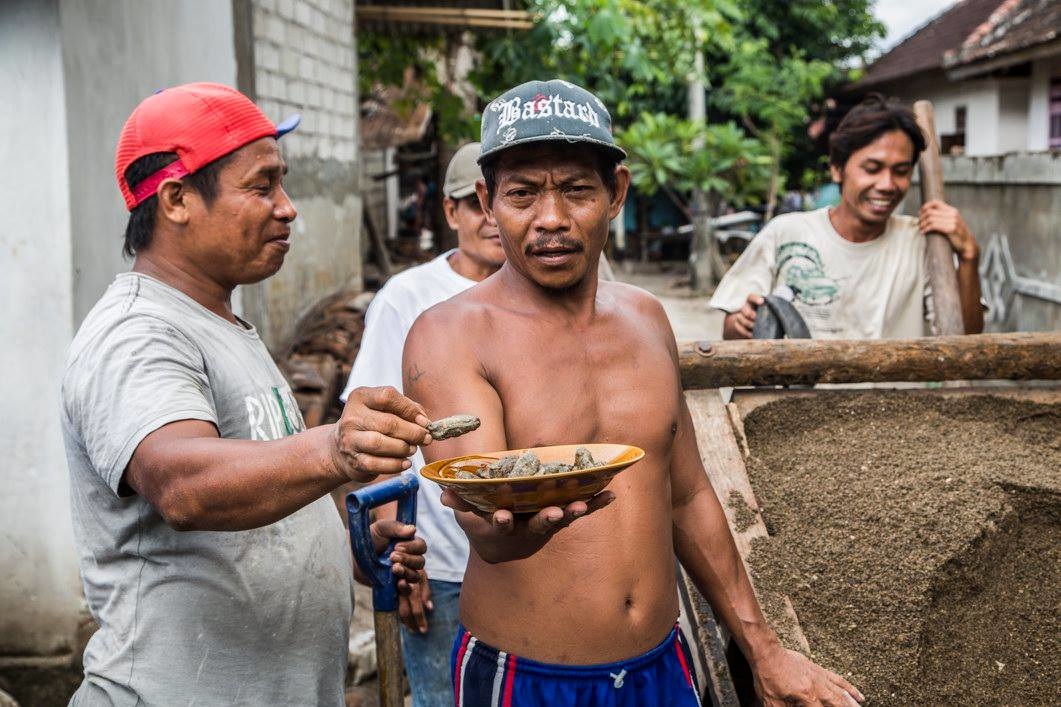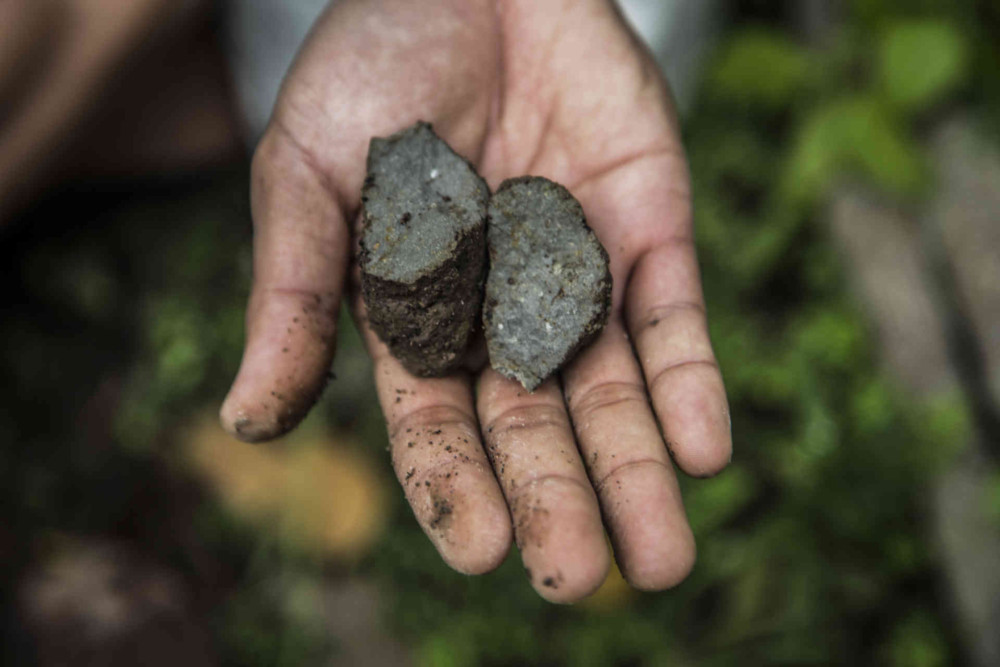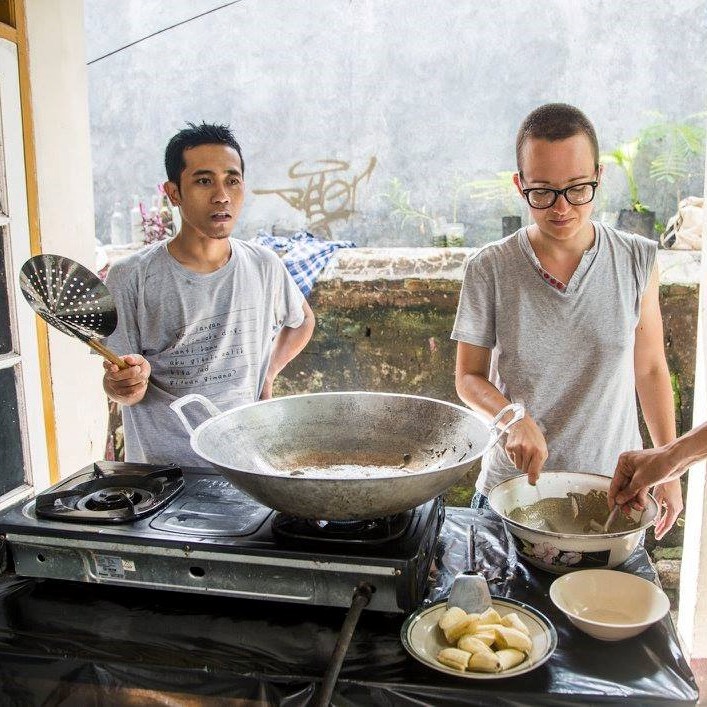In Indonesia, eating earth is an old traditional habit, which is still present in some villages. Geophagy, the action of eating earth and soil-like substances, is present either as a spiritual practice, or as a cultural cuisine – in a form of a smoked snack, or even as a medicine. For instance, it is considered to strengthen women’s fertility, and moreover, to be good for pregnancy. Unfortunately, it is more and more sinking into oblivion, especially among the young generation.
A part of a research trip in Indonesia Muhammad Sibawaihi and masharu have been visiting the Dusun Bentek, Pemenang Barat Village, Pemenang District, North Lombok Regency. It is in the place of the Kingdom Lembah Sari, known as the lost kingdom. According to the legend, as a response to the colonization attempt, the kingdom disappeared from the material world and still exists in a parallel reality. Sometimes the locals can enter the white streets of the lost kingdom. Also, the grave of the king Lumendung Sari is still visible for the common people. One must enter the grave space with respect, barefoot only.

Apart from the information about the Kingdom Lembah Sari and the king’s grave, people also told stories about the edible soil Batu Ampan. They notably told that Batu Ampan is especially loved by pregnant women and as well can help against stomach problems. Also, people used to eat it after the meals as a snack. This soil is possible to find in the local ground around the village or on top of the hills.
Muhammad Sibawaihi and masharu went together on a search for Batu Ampan, which they found on the top of the hills, as they had been told.
Later, they have been sharing what they learned from about traditional geophagy with the members of the Pasirputih Fondation, in Pasirputih, Lombok. The Pasirputih Foundation is an egalitarian non-profit organization based in the Pemenang, North Lombok, West Nusa Tenggara. It was established on December 29th, 2009. The organization focuses on the development of media literacy knowledge, arts, and both social and cultural studies. The Foundation works by facilitating social education and culture, especially the arts and media, through collaborative activities and involving local residents in the Pemenang District in particular, and North Lombok in general. Its members were not aware of the Indonesian habit of eating earth and therefore were very surprised to learn about it and curious to discover it by practicing. The workshop COOKING VOLCANIC ROCK has been organized in the Pasirputih Foundation. Using the Batu Ampan we found in the Pemenang Barat Village, we cooked this volcanic rock using Indonesian traditional ways. With this experience, the participants have been reconnecting with a part of their national heritage, and we all enjoyed a sharing moment together.



